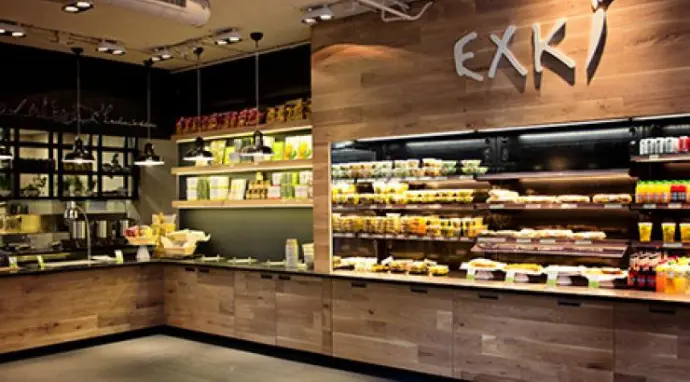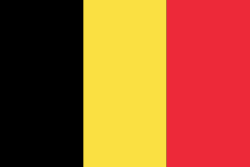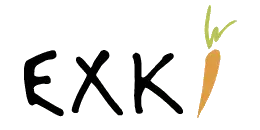Twenty-two years ago, Frédéric Rouvez took on a bold challenge: reinventing fast food by prioritizing taste, health, and responsibility. That vision gave birth to EXKi — an innovative concept that has steadily gained traction, attracting a growing audience ranging from busy professional women and young urbanites to companies invested in the well-being of their employees.
While EXKi initially won people over with its food, its success also stems from a deep digital transformation — carried out quietly, yet with determination. Idealis Consulting, a trusted technology partner, has been supporting this evolution behind the scenes.
This interview is part of our “Idealis On Tour” series, which shines a light on the digital journeys of our most inspiring clients.
EXKi is a Belgian fast-food chain focused on a plant-based offering. It serves healthy, seasonal dishes, including vegetarian, vegan, and gluten-free options, while embracing sustainable practices such as reducing plastic use and sourcing organic and fair-trade products.

Could you please introduce yourself?
Frédéric Rouvez
Hello, I’m Frédéric Rouvez. I’m married and a father of three children. I’m the founder of EXKi, which I launched almost 22 years ago.
Mai-Van Vu
My name is Mai-Van. I’ve been working at EXKi for 11 years now. I mainly manage our ERP system and have been involved almost from the very beginning of the project.
We are here today at EXKi, your company. Although the EXKi brand is quite well known, could you please explain the concept to us?
Frédéric Rouvez
EXKi is fast food that aims to be healthy while remaining tasty and balanced. Originally, our target audience was primarily active women concerned about their well-being and figure. Gradually, and fortunately, we have succeeded in attracting men and young people to follow the same path.
What is the story of your company? How did it come to be? What were your goals? How did the idea come about?
Frédéric Rouvez
EXKi was born nearly 22 years ago with the idea of offering an alternative to traditional fast food: a place where you eat quickly, but well. The goal was to create a brand focused on fresh, healthy, and environmentally friendly products, while remaining accessible.
What kind of customers come to EXKi?
Frédéric Rouvez
We started with a very specific target: active women. But over time, our customer base has greatly diversified. Today, our clients include men and young people alike, all seeking healthy and balanced food choices.
I assume you’ve faced some challenges. What are—or were—they?
Mai-Van Vu
When I joined EXKi, we were still at the early stages of our ERP system. Orders were placed by email, and we were even still using fax at the time. There was already a desire to implement an ERP, and we started with version 6 focusing on the product management before adding purchase order management.
Then, we moved to version 8, which we stayed on for a long time. It was only shortly before COVID that we migrated to version 13, followed by version 14. Each transition was a real challenge but also an opportunity for improvement.
You decided to implement Odoo at EXKi. In your opinion, what are the benefits of implementing a management tool?
Mai-Van Vu
The Idealis team has supported us throughout our technological evolution. They helped us challenge ourselves and ask the right questions about our usage and practices as users.
There is what we would like to do, and then there is what the tool offers as standard. Finding the right balance is essential, and Idealis truly helped us achieve that.
You have carried out various projects with Idealis Consulting, such as launching the Delivery service with your Exki at Work offer. Could you please explain the concept to us?
Frédéric Rouvez
We expanded our offering by launching two main services.
The first service consists of connected fridges that we install in companies. They are stocked daily with our ultra-fresh products. The fridges are linked to an employee card, bank card, or credit card. The employee opens the fridge, helps themselves, closes it, and the payment is automatically processed via RFID tags. No checkout is required.
The second project is an evolution of our existing delivery service for companies. We set up shelves in office spaces and adapted the Click & Collect solution we developed with Idealis during COVID.
Today, users place their orders through the same app, but instead of picking up their order at an EXKi restaurant, they collect it on the ground floor of their building or at another designated pickup point arranged with reception and management.
To further promote EXKi and this new concept, the Idealis team completely redesigned the website. How did the project go? What changes did you make? And why?
Mai-Van Vu
We try as much as possible to rely on standards, customizing only what is necessary to avoid creating an overly complex system.
On the delivery side, we worked with Idealis on certain customizations, such as entering the delivery address directly on the website.
There are, of course, specific requirements unique to EXKi, and some of these require custom developments. However, the risks and costs were assessed upfront, and we concluded that it was worth it.
To conclude, if you had to summarize your experience with Idealis in one sentence, what would it be?
Frédéric Rouvez
You have a great team that manages to communicate the right messages clearly and simply, without making it feel like we’re in another world.
And if you ask our IT department, they will tell you that Idealis is extremely responsive and available.



EXKi x Idealis: When fast food becomes smart, healthy… and connected